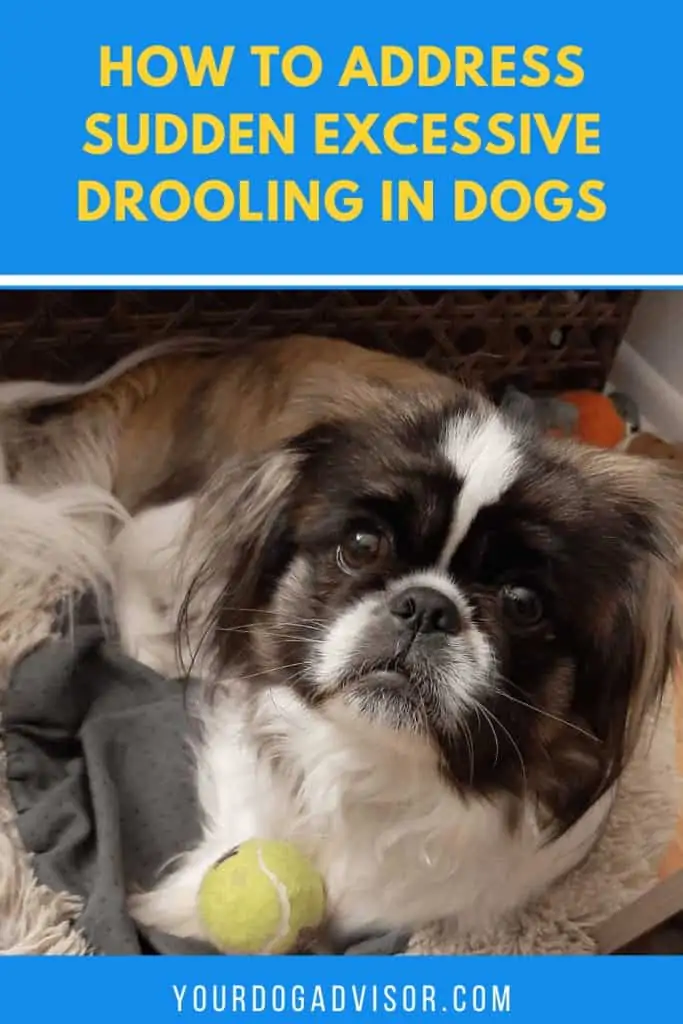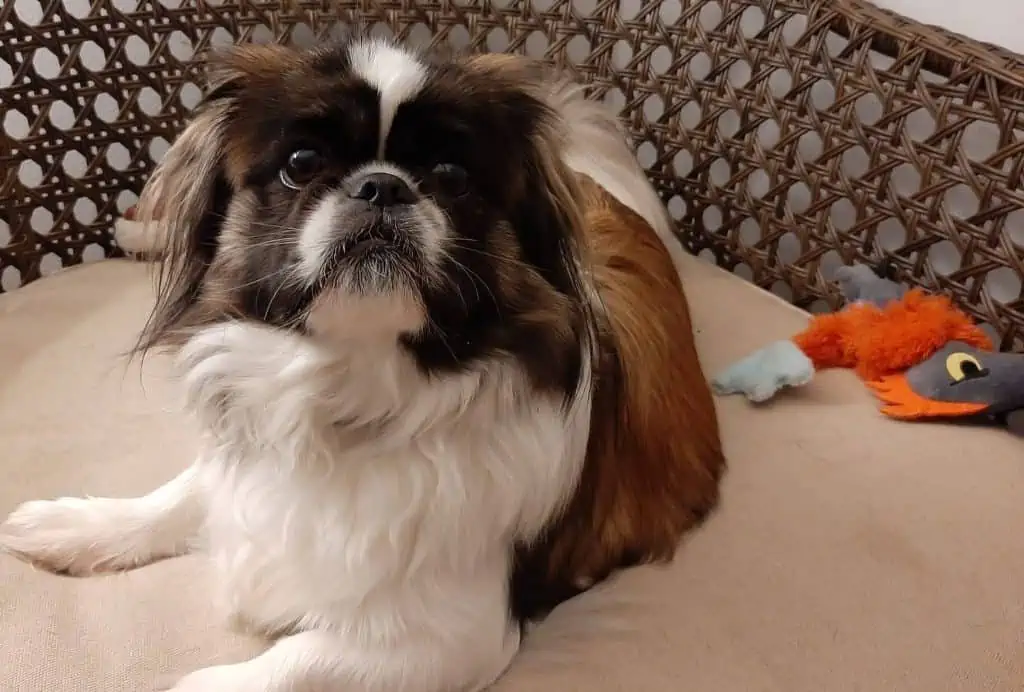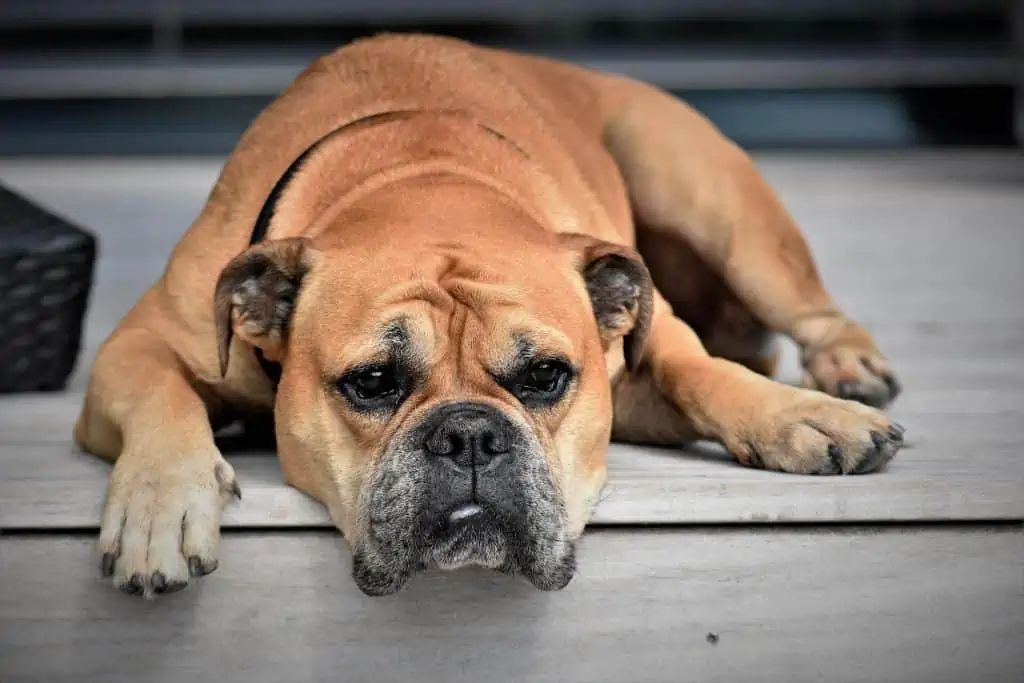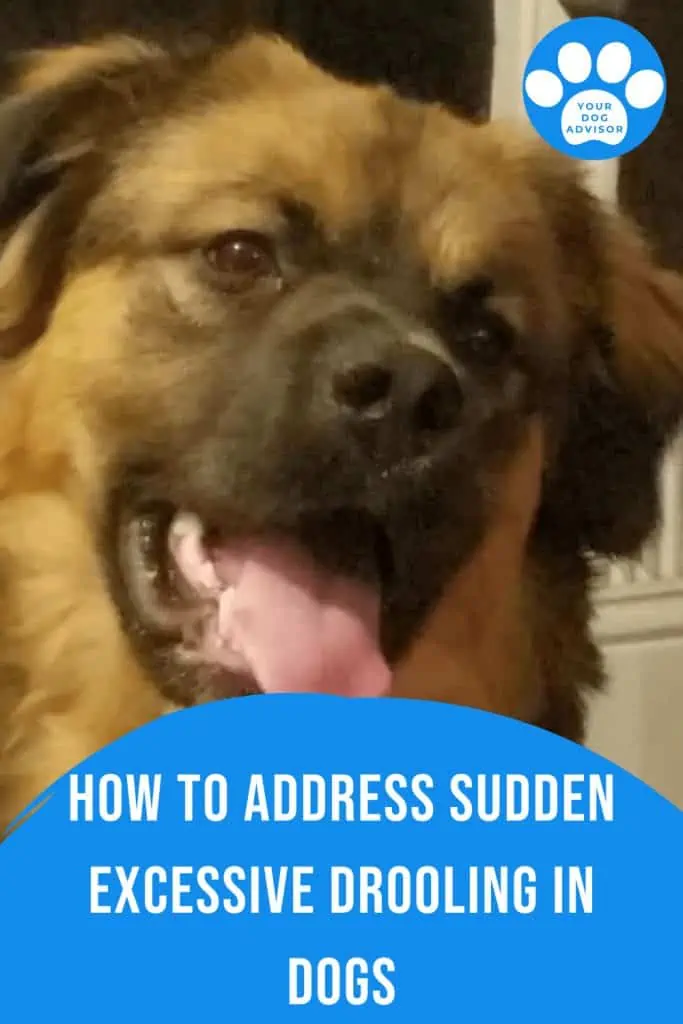Drooling is usually pretty normal for dogs, especially for specific breeds.
It’s basically saliva escaping from the mouth. Saliva results from the salivary glands producing saliva from the neck and jaw area to help them digest food. It’s a normal, healthy function. It can be gross and a pain to deal with for us, but if your companion’s a slobberer, it’s usually nothing to worry about.
But sometimes the slobbering can get a bit excessive, and it can be worrisome for dog owners. They may salivate a lot, but there is a point where it can indicate a health problem. It can be especially concerning if your companion isn’t normally a slobberer.
If your dog suddenly starts drooling excessively, it’s best to find the cause quickly. There could be something wrong with their mouth, stomach, or other health problems. It’s also important to know your dog and how much slobbering is normal for them.
Contents
Know Your Dog’s Breed
Certain breeds naturally drool more than others. These breeds usually have larger upper lips, causing more saliva to escape their mouths. Mastiffs, Saint Bernards, and Bloodhounds are well-known for being big slobberers.
Certain breeds are natural droolers because of their large upper lips.
If you have one of these breeds (including some mixed breeds), you should expect a good amount of slobbering. Consider keeping a towel or bib around to catch their excess slobber. These can be helpful if your pup slobbers to the point of making a mess.
No products found.
That said, know your companion and how much slobber they normally produce. If they’re salivating even more than usual, try to rule out any health issues. Observe them for any other worrying symptoms like appetite loss, dehydration or excessive drinking, or lack of energy.
Watch Your Dog’s Dental Health
Some of us don’t think about our dog’s dental hygiene nearly as much as we should. If there’s a problem in your pup’s mouth, it can cause excessive salivating. If there’s a bad tooth or gum disease that makes swallowing difficult, it can cause them to suddenly start salivating more.
If your pup is suddenly drooling (or more than usual), check their mouth for any yellow or brown plaque buildup or bright red gums (they should be pink, like ours). If you see anything out of the ordinary, they may need a dental wash.
Take them to the vet if you see anything in their mouth, including foreign objects lodged or lumps. You should also be taking them to get their mouth cleaned and checked at least once or twice a year to prevent problems in the long run.
Make sure you’re taking care of your pup’s teeth and mouth regularly. There are dog toothbrush kits you can buy to help you stay on top of their dental health and fight tarter and plaque build-up.
No products found.
Ease Anxiety
Stress and anxiety can cause a dog to drool. An anxious pup may also pant more and pace around or tuck their tail.
If you notice your pup starts salivating during a stressful time or shows any other signs of stress and anxiety, their anxiety may be causing them to drool, especially if it’s not normal behavior for them.
Car fears and motion sickness is especially known for causing an anxious pup to salivate. If you notice slobbering is especially bad in the car, they may have car anxiety or motion sickness.
If it’s anxiety, you may want to work on gradually getting your pup used to the car. It can take time, but eventually, they can grow to love their car rides.
If it’s motion sickness, they won’t start showing symptoms until the car is moving. They may also get nauseous and throw up. You may want to keep your pup in a secure spot and make sure to drive carefully, making sure they’re as secure and comfortable as possible.
Pay attention to your pup’s behavior and work on easing their anxiety if they seem more stressed than usual. If anxiety is causing their excessive salivating, it should stop once they’re no longer anxious.
Watch for Heat Strokes
Drooling can be a warning sign of heat stroke. Certain breeds like flat-faced breeds are especially susceptible to heat strokes. They’re a serious concern and can lead to an emergency if you’re not paying attention.
Always keep the weather and temperature in mind when taking your pup anywhere. Keep in mind that they always have a fur coat and can’t handle the same amount of heat you can. Watch for excessive panting, slobbering, or other signs, and keep water on you at all times.
Avoid leaving your pup out in hot weather. If you do have to leave them out, at least make sure they have cold, clean water and a shady place to avoid the sun. Do not ever leave them in a car unattended with no AC.
If it’s hot outside, consider playing games with your pup indoors for exercise rather than going out on a run. If you live in a place that’s forever boiling hot, you should get used to doing exercises indoors.
Drooling can be a symptom of a heat stroke. Pet owners should be careful not to leave their dogs in the heat for too long.
Watch For Other Health Issues
Many other health issues may result in excessive drooling. While many causes are linked to mouth and stomach problems, there are other potential problems to consider.
Stomach Problems
Stomach problems can cause drooling. It could be caused by something they ate. We know our furry friends aren’t picky eaters. They’re forever picking up things they shouldn’t that they can’t digest properly, and that may cause excessive salivating.
If your pup tries to eat something harmful like a sock, it could also get stuck. If your companion can’t swallow properly because of an obstruction, they may start salivating.
If your pup has an upset stomach, they may also have diarrhea, vomiting, or suffer from a loss of appetite. While it could just be something they ate, it’s best to stay on top of it and call the vet if it doesn’t improve by itself after a day or two.
Dogs can start drooling more if they ingest something toxic such as poisonous plants or foods. Make sure you know what toxic substances are in your immediate vicinity and keep your pup away from them, including any human foods they shouldn’t be eating.
If you suspect that your pup has ingested something harmful or has an obstruction, call the vet immediately.
Kidney Disease
Drooling can be a symptom of kidney disease. This is a very serious disease and by the time it’s diagnosed it’s usually already done major damage. It’s important to watch for symptoms and act fast if you suspect your pup has it.
Dogs suffering from kidney disease may also suffer from lethargy, lack of appetite, and excessive drinking and urination.
Excessive drooling can be a symptom of major health problems like kidney disease or mouth problems.
Bloat
Bloat is a life-threatening condition. On top of drooling, you may also notice your dog’s stomach enlarge, throwing up, and whining in pain if you press on their stomach.
If you notice your pup’s stomach enlargement or any other symptoms, call the vet immediately. Dogs with bloat can die in hours.
Respiratory Issues
Drooling can indicate sinus infections or other respiratory problems. If your pup is congested and can’t breathe well, or they’re also coughing and hacking, they may be suffering from some kind of breathing issue. If their throat is in pain, they may salivate more because it’s difficult to swallow.
It’s important to watch these conditions and take your pup to the vet if they aren’t getting better. Be especially vigilant with flat-faced breeds as they’re more susceptible to breathing complications.
Tumors
Sudden drooling may be a warning sign of a tumor, specifically an oral tumor. Tumors are a dangerous problem if left alone.
On top of excessive slobbering, your pup may also suffer from bad breath, excessive panting, and movement or loss of teeth. They may also understandably not have an appetite as eating becomes more difficult. You may also notice face swelling.
If your pup is suddenly salivating excessively and showing any of these other symptoms, it may be best to take them to the vet and rule out a tumor ASAP. They can be deadly and they may require surgery to remove. The sooner you get them to the vet, the better.
Take Your Dog to the Vet
Some drooling is normal. If you have a dog that’s well-known for slobbering, you probably don’t need to freak out over it. Keep a towel or bib around to wipe up the mess. If they seem to be slobbering more than usual though, check their mouth and watch for any other symptoms of illness.
Salivating can also occur when your pup is hungry and ready for you to feed them. If they’re slobbering a little before feeding them, you don’t need to worry. It’s a natural occurrence.
That said, if your pup isn’t usually a slobberer and they’re suddenly slobbering excessively, you want to rule out problems quickly. Excessive drooling can be a warning sign of some serious conditions or injuries.
If your dog’s slobbering is accompanied by other symptoms like lethargy or diarrhea, it’s best to get to the vet quickly.
If you notice your pup has also lost their appetite and energy, it’s best to take them to the vet. There may be a more serious problem like a mouth injury or stomach problem. They could be too nauseous to eat if it’s a stomach issue, or it could hurt too much to eat if it’s a mouth problem. Either way, they may need a vet’s assistance.
Dogs in oral pain may also rub at their muzzle with their paws or rub it on the floor. This can be a good sign that something’s wrong with their mouth that only a vet can solve.
Pay attention to your pup’s behavior. If they seem grouchier than usual or act withdrawn on top of the drooling, they may be in pain.
If you have any reason to believe that your pup is salivating because they’re sick, or god forbid you suspect they ate something toxic to them, call the vet quickly.
Addressing Your Dog’s Excessive Drooling
Dog drooling isn’t necessarily bad, but it is something to watch if it suddenly becomes excessive, especially if your pup isn’t normally a slobberer.
Stay on top of their mouth and dental health to prevent problems from cropping up that would cause excessive salivating. Watch their surroundings and make sure they aren’t eating anything toxic. Make sure they don’t get overheated.
Watch out for any other symptoms including lethargy or loss of appetite. Always call the vet if you suspect your furry friend is in pain and you can’t solve it. Be especially vigilant if you have dogs who are prone to health problems like bloat or breathing issues.
Drooling can be gross, but it’s mostly normal. But it can also be an indicator of a larger problem, giving you the chance to catch it early on.


Jen Jones is a professional dog trainer and behavior specialist with more than 25 years of experience. As the founder of ‘Your Dog Advisor’ and the ‘Canine Connection’ rehabilitation center, she applies a holistic, empathetic approach, aiming to address root causes rather than merely treating symptoms.
Well known for her intuitive and compassionate approach, Jen adopts scientifically-proven, reward-based methods, encouraging positive reinforcement over punishment. Jen specializes in obedience training, behavior modification, and puppy socialization. Her innovative methods, particularly in addressing anxiety and aggression issues, have been widely recognized. Jen has worked with many of the world’s leading dog behaviorists and in her free time volunteers with local animal shelters and rescue groups.




